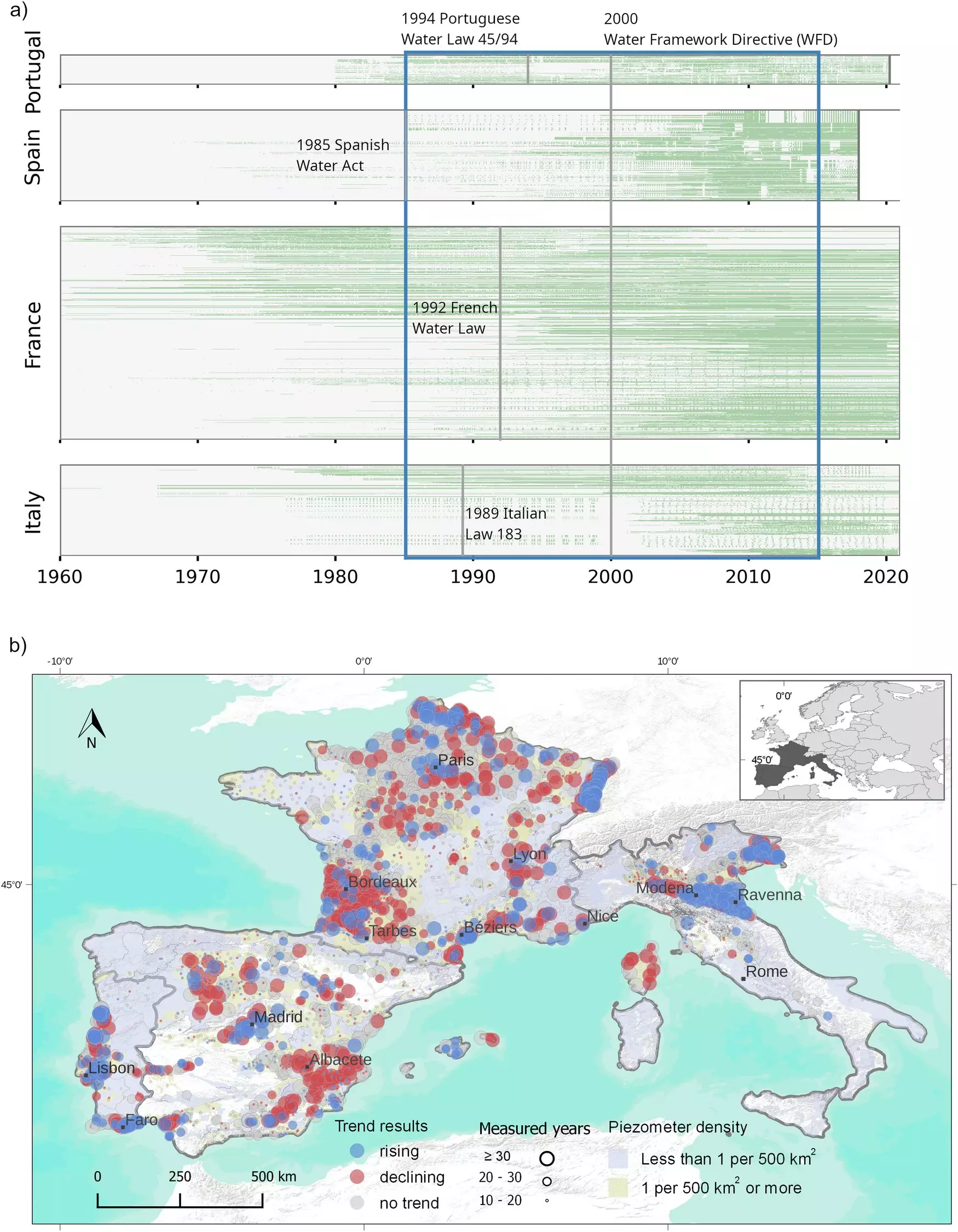Groundwater is an essential resource that plays a crucial role in sustaining plants, ecosystems, agricultural production, and drinking water supplies. However, there is a common misconception that groundwater levels are continuously declining everywhere, especially in southwestern Europe. A recent study conducted by an international research team led by the Helmholtz Centre for Environmental Research (UFZ) challenges this belief through the analysis of multidecadal data from over 12,000 groundwater wells in Portugal, Spain, France, and Italy.
Contrary to popular belief, the study found that groundwater levels are not decreasing everywhere in southwestern Europe. In fact, only 12% of the wells showed a decline, while 68% exhibited stable levels and 20% showed rising levels over the past three decades. The decline was primarily observed in semi-arid regions with intensive agriculture and frequent droughts, as well as in temperate regions near large urban areas.
The researchers identified climate change as a significant factor contributing to declining groundwater levels in semi-arid regions like Tarbes (France) and Medina del Campo (Spain). Decreased rainfall and elevated temperatures, exacerbated by climate change, have led to the gradual depletion of groundwater resources in these areas. Intensive agriculture further compounds the issue, with groundwater supplying a substantial portion of irrigation needs for fruit, vegetable, and grain production in these four Mediterranean countries.
Even in temperate regions with high precipitation rates, groundwater depletion was observed in proximity to cities and industrial zones. Major metropolitan areas such as Lyon, Nice, Modena, Bordeaux, and Béziers have experienced declining groundwater levels since the 1960s due to increased domestic water use, industrial activities, and tourism. The overexploitation of groundwater resources in these urban centers poses significant challenges for sustainable management and conservation efforts.
Despite these challenges, the researchers identified successful groundwater management practices in semi-arid, agricultural regions that have led to the recovery of groundwater levels. For instance, La Mancha Oriental in Spain implemented monitoring, remote sensing, and individual water use plans to reverse the declining trend in groundwater levels caused by excessive irrigation. This case study highlights the importance of stakeholder engagement, data-driven decision-making, and proactive measures in ensuring sustainable groundwater use.
The findings from southwestern Europe not only provide valuable insights into the complex relationship between groundwater and climate change but also offer lessons for other regions worldwide facing similar challenges. As groundwater demand continues to rise and aquifer recharge is impacted by climate change, there is a growing need for anticipatory and sustainable groundwater management practices. Germany, in particular, can benefit from the experiences and strategies developed in southwestern Europe to optimize groundwater use, enhance irrigation efficiency, and foster stakeholder collaboration in water resource management.
The study underscores the importance of adopting a nuanced and localized approach to groundwater management, considering the diverse environmental, climatic, and anthropogenic factors influencing groundwater availability. By learning from successful case studies and implementing effective management strategies, countries can mitigate the impacts of climate change on groundwater resources and ensure long-term sustainability for future generations.


Leave a Reply